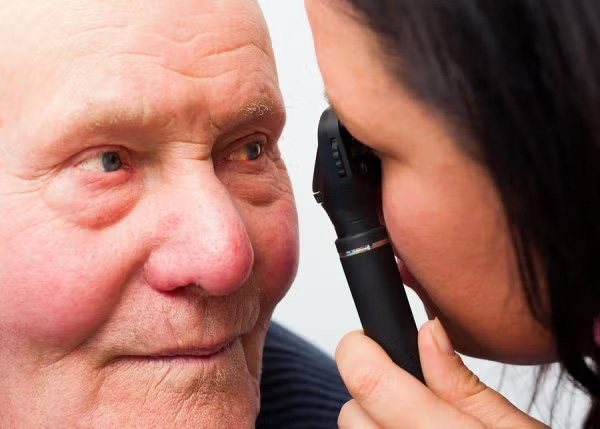Cataracts are something you may have to deal with starting around your 40s or 50s. Although cataracts are not life-threatening, they can cause difficulties in everyday life. Don’t let cataracts take away your independence. If you’re finding daily activities hard to do due to your cataracts, it may be time to consider surgery to improve your quality of life.

What Are Cataracts and How Do They Affect Vision?
Cataracts are a clouding of your eye that occurs in the lens. The lens is an important part of your vision since it is the part of your eye that helps to focus light onto your retina, just like it does with a camera. Because the lens must be completely clear in order to transmit the light (or image) fully, clouding of the lens due to cataracts can cause blurriness or brown-tinted vision. What determines one or the other is how your lens is affected.
Your lenses are made up of mainly water and protein. When you age, the protein may start to clump together, which clouds the lenses and blocks the light received by the retina. This results in blurred vision, and most age-related cataracts are from this type of cataract. What causes brown-tinted vision is when your lenses slowly change to a yellowish or brownish color due to aging. Should it become advanced, you may not be able to see blues and purples.
The Benefits of Surgery
If you aren’t able to live an independent life due to cataracts, cataract surgery may help you restore your independence. Cataract surgery is one of the most performed surgeries in the country, which means most surgeons are familiar with the procedure. In fact, it is one of the safest and effective types of surgery. 90% of people who have had cataract surgery report better vision afterwards. By having your cataracts removed, you’ll be able to drive, cook, and use the computer again. You won’t have to constantly rely on your family and friends for help.
The Potential Problems That Come With Surgery
Because cataract surgery is still a type of surgery, it does come with risks. While you are healing from the procedure, there is risk of infection and bleeding. Because of that, you may be asked to temporarily discontinue the use of certain medications, since they may cause increase of bleeding during surgery. Should your eyes get infected, it can result in loss of vision.
Cataract surgery also puts you more at risk for retinal detachment. If you have a high prescription for nearsightedness, this can also put you more at risk for retinal detachment. Retinal detachment is a serious medical condition. If you suspect you may be experiencing it, seek immediate medical help. Even with immediate treatment, retinal detachments may cause loss of vision. The sooner you seek help, the better the prognosis. Although there is no pain associated with this condition, you may see a sudden increase in flashes or floaters in your eyes. If this happens, call our after-hours emergency answering service.
If you’re living with cataracts and are ready for surgery but concerned about the risks, talk with our doctor to see if surgery is the right choice for you.
- Allergies and Dry Eyes2
- Astigmatism5
- Bifocal Contact Lenses1
- Cataracts15
- Children6
- Contact Lenses17
- Contacts6
- Cosmetic Eye Procedure1
- Cosmetic Surgery1
- Crizal Prevencia1
- Diabetes3
- Dry Eye Syndrome Manchester4
- Dry Eyes24
- Effects of Exercise1
- Eye Care45
- Eye Disease3
- Eye Doctors17
- Eye Exams31
- Eye health44
- Eye irritation7
- Eye Strain3
- Eye Syndrome1
- Featured Post8
- Financing Options1
- Glasses20
- Glasses or Contacts1
- Glaucoma12
- Infographic3
- IPL3
- Lasik28
- LASIK Surgery23
- Lip Care1
- Macular Degeneration4
- Ocular Diseases2
- Pulsed Light Therapy1
- Refractive Errors1
- Spindel Eye2
- Spindel Eye Reviews16
- Sunglasses2
- Top-Tier Awards1
- Trifocal1
- Vision Care13
- Winter eyecare1
- Winter glare1
